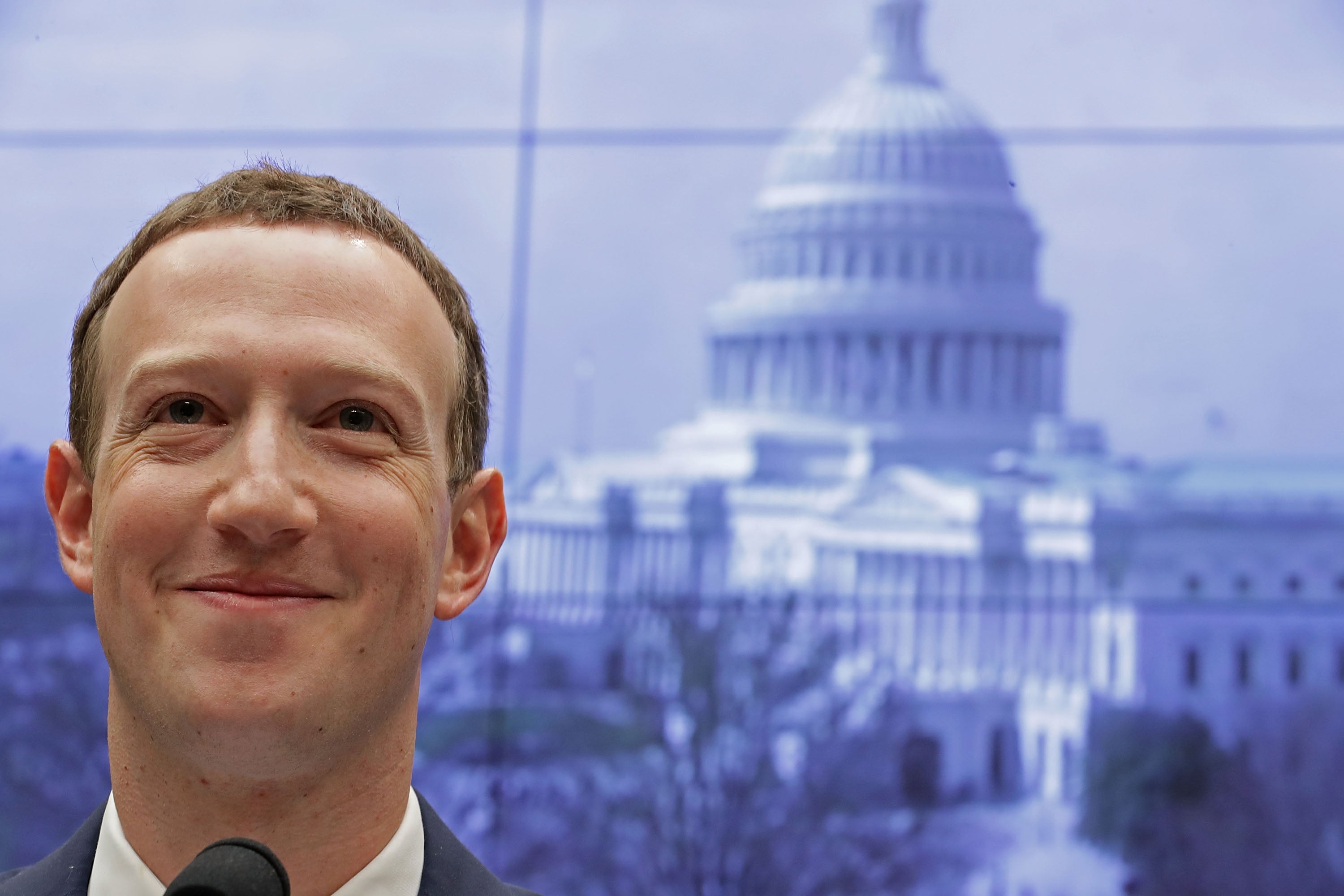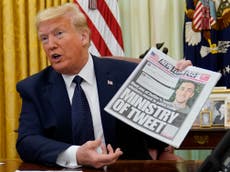The Independent's journalism is supported by our readers. When you purchase through links on our site, we may earn commission.
Mark Zuckerberg says internet needs new rules ahead of US congress hearings on social media bias
Zuckerberg, alongside Jack Dorsey and Sundar Pichai, are set to provide testimony before Congress

Your support helps us to tell the story
From reproductive rights to climate change to Big Tech, The Independent is on the ground when the story is developing. Whether it's investigating the financials of Elon Musk's pro-Trump PAC or producing our latest documentary, 'The A Word', which shines a light on the American women fighting for reproductive rights, we know how important it is to parse out the facts from the messaging.
At such a critical moment in US history, we need reporters on the ground. Your donation allows us to keep sending journalists to speak to both sides of the story.
The Independent is trusted by Americans across the entire political spectrum. And unlike many other quality news outlets, we choose not to lock Americans out of our reporting and analysis with paywalls. We believe quality journalism should be available to everyone, paid for by those who can afford it.
Your support makes all the difference.Facebook CEO Mark Zuckerberg has said that Congress should update its Section 230 legislation.
Section 230, which is described by proponents as a tool for protecting freedom of expression and innovation on the Internet, protects websites from legal liability for content that their users publish.
So long as websites act in “good faith,” they can remove content that is offensive or otherwise objectionable.
In a senate hearing, scheduled for 28 October, Zuckerberg is expected to support changing the legislation, which has recently become more politically controversial.
The growing debate over the legislation “shows that people of all political persuasions are unhappy with the status quo”, Zuckerberg said in a prepared statement.
“People want to know that companies are taking responsibility for combating harmful content – especially illegal activity – on their platforms. They want to know that when platforms remove content, they are doing so fairly and transparently. And they want to make sure that platforms are held accountable,
“Section 230 made it possible for every major internet service to be built and ensured important values like free expression and openness were part of how platforms operate. Changing it is a significant decision. However, I believe Congress should update the law to make sure it’s working as intended.”
The reason that Section 230, which was enacted in 1996, has become so contentious recently is partly because of president Donald Trump, who targeted the legislation with an executive order in May.
Mr Trump believes that the law is being used to shield social media companies such as Twitter, Facebook, and search giant Google from perceived bias against the Republican, something that the social media companies have regularly denied and which is legally unrelated to Section 230 legislation.
Nevertheless, the incorrect notion that Section 230 is married to a form of ‘political neutrality’ is one that has been repeatedly spread by Republican congresspeople such as Ted Cruz and Josh Hawley since 2018, despite not being accurate.
Democratic presidential candidate Joe Biden also believes that Section 230 needs to be “revoked”, seemingly so Facebook could be sued for hosting false information yet are “exempt from being sued”.
While Section 230 protects Facebook, Twitter, and other “Big Tech” platforms from legal ramifications, it applies to all websites.
“Under the law, bloggers are not liable for comments left by readers, the work of guest bloggers, tips sent via email, or information received through RSS feeds. This legal protection can still hold even if a blogger is aware of the objectionable content or makes editorial judgments” the Electronic Frontier Foundation explains.
Twitter CEO Jack Dorsey is set to defend the legislation, as does CEO of Alphabet and Google, Sundar Pichai.
“Undermining Section 230 will result in far more removal of online speech and impose severe limitations on our collective ability to address harmful content and protect people online,” Dorsey said.
Pichai said that lawmakers should “be very thoughtful about any changes to Section 230 and to be very aware of the consequences those changes might have on businesses and consumers.”
Should Section 230 be changed, it could result in more political censorship, rather than less.
The Section 230 protection has stopped Twitter from taking action against the inflammatory content Mr Trump is prone to post.
“Ironically, Donald Trump is a big beneficiary of Section 230,” said Kate Ruane, a senior legislative counsel for the American Civil Liberties Union, said in May.
“If platforms were not immune under the law, then they would not risk the legal liability that could come with hosting Donald Trump’s lies, defamation and threats.”


Join our commenting forum
Join thought-provoking conversations, follow other Independent readers and see their replies
Comments